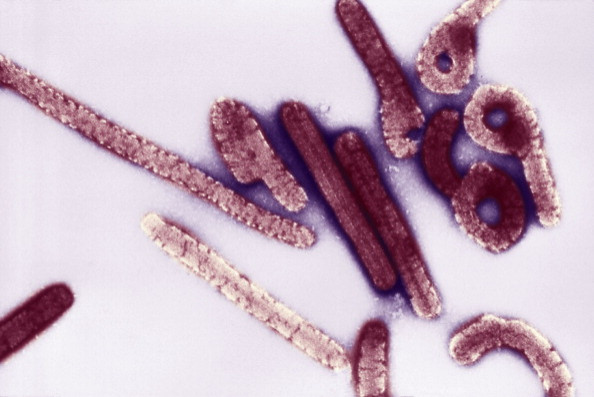It's possible to be infected with Ebola and not show any symptoms
A minority of Ebola patients appear to show little or no symptoms following an infection.
A number of people infected with Ebola may not show any symptoms of the disease, scientists have shown. The epidemic in West Africa may thus have been more widespread than previously thought, since asymptomatic cases were not recorded.
The Ebola virus which struck mainly Guinea, Sierra Leone and Liberia between 2013 and 2016 killed more than 11,000 people, devastated local communities and left the economy and the healthcare systems of these countries in a vulnerable state. It is estimated that a total of 28,000 persons were infected. However, scientists had also found evidence that a minority of people could catch the Ebola virus without developing any symptoms (or very few).
During the epidemic, little attention was granted to these asymptomatic cases, because they were not considered relevant to models or public health intervention efforts.
However, the epidemiology of Ebola cannot be entirely understood without researchers identifying the full spectrum of clinical manifestations, including minimally symptomatic infection.
This is why a team from Stanford University (US) conducted a study on the subject, now published in PLOS Neglected Tropical Diseases.
Survey in a village
A year after the peak of the epidemic, from October 2015 through January 2016, the scientists went to a village in Sierra Leone, which had been very severely affected by the epidemic. In total, 34 reported cases of Ebola were reported in the village, and 28 of them died.
Out of the 900 villagers, they identified 187 adults and children who had never showed symptoms of Ebola despite living with or sharing a latrine with Ebola patients – and thus being particularly at risk of transmission.

The researchers conducted blood tests on these people, looking for the presence of Ebola antibodies that would signal a previous infection. They compared the results with that of controls who had been infected in other villages as well as with controls who had never been infected and lived in villages who remained free of Ebola.
The researchers found that 14 of their 187 participants tested positive for Ebola antibodies even though they had never been confirmed as Ebola cases during the epidemic. Twelve of them said they didn't remember having had any symptoms, while the remaining two only recalled having had a fever.
The scientists hope their findings can improve the management of potential future epidemics and increase knowledge of symptoms and transmission of Ebola. They say their study indicates that public health efforts to prevent infection and contain the virus during the epidemic were not entirely effective as cases that presented little symptoms were not dealt with.
"It reminds us that we need to do a much, much better job in future epidemics. We expect to find a lot more undocumented survivors, so we can begin to answer the question of what was the true burden of disease," lead author Gene Richardson concluded.
© Copyright IBTimes 2025. All rights reserved.






















